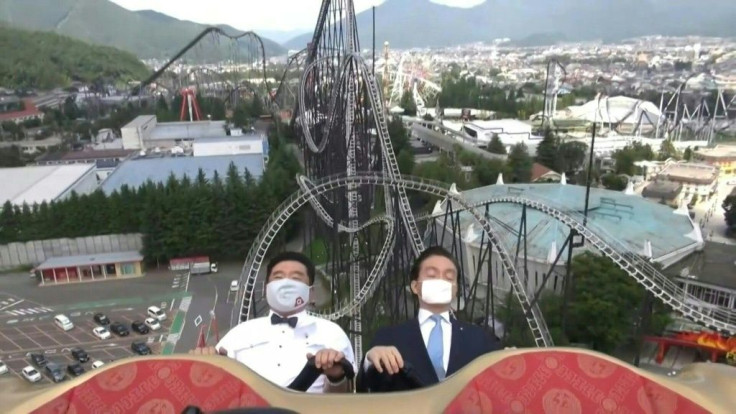4 Riders Break Neck, Back In World’s Fastest Roller Coaster; Japan Suspends Operation
KEY POINTS
- The world's fastest-accelerating rollercoaster in Japan has been shut down until further notice
- Four riders reported suffering fractures on their neck or back
- One passenger suffered a fracture of the thoracic spine and will require up to three months in the hospital to recover
An amusement park in Japan suspended the world's fastest-accelerating rollercoaster for inspection earlier this month after four reports of people suffering broken bones from riding it.
The Do-Dodonpa, one of the Big 4 rollercoasters of Fuji-Q Highland amusement park in Fujiyoshida city, Yamanashi, has shut down operations until further notice due to a safety overhaul, according to the park's website.
At least six passengers suffered injuries after riding the attraction with "super death" speed between December 2020 and August 2021. Four people in their 30s to 50s who rode the Do-Dodonpa broke their neck and back, Japanese newspaper The Mainichi reported.
The park’s operators confirmed four reports of injuries sustained but did not say that the ride was the direct cause. “We would like to express our deepest sympathies to the injured customers … but we will endeavor to investigate the cause under the guidance of the government,” the statement on its website. read.
The ride has been out of operation since Aug. 12, the park added.
One rider suffered a compression fracture of the cervical spine, a portion of the vertebrae in the neck, CNN reported. Another person reportedly suffered a fracture of the thoracic spine, in the upper and middle back, and will require up to three months in the hospital to recover.
Most rollercoasters accelerate through gravity, but Do-Dodonpa is propelled mechanically. It was renovated in 2017 to increase its top speed from 106 miles per hour to 112 miles per hour. Still, no severe injuries like bone fractures were reported since it began operating 20 years ago until the recent incidents.
Each accident between December 2020 and Aug. 12 was reported to police, Japanese newspaper The Asahi Shimbun reported. However, the park reportedly did not report the accidents to the prefectural government until Aug.17 despite the fourth accident occurring five days prior.
After each incident, the park checked the ride with manufacturers to ensure the machinery was operating smoothly. Following the third accident, operators also checked the coaster's accelerating speed, but no abnormalities were found.
"Currently, the causal relationship between injuries and amusement machines has not yet been confirmed," the theme park's statement read.
Sansei Technologies, Do-Dodonpa's manufacturing company, apologized to the injured riders but also stated that it has not been determined that the injuries were directly caused by the ride.
Even with the ongoing COVID-19 pandemic, amusement parks across Japan have remained open since June 2020 but urged roller coaster riders to "scream inside your hearts" to reduce the risk of virus transmission.

© Copyright IBTimes 2025. All rights reserved.





















